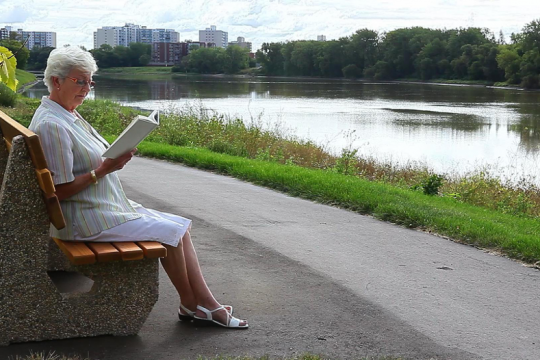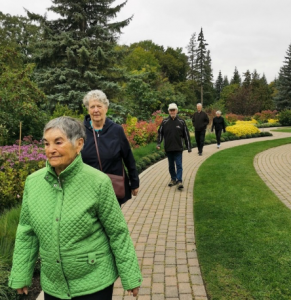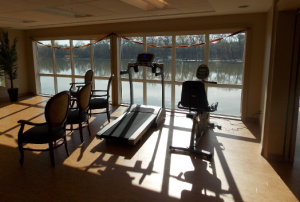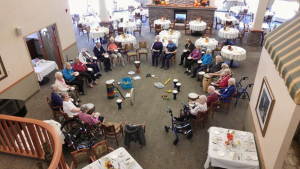
As fall approaches, we notice the days getting shorter and beginning to cool. Geese can be heard flying south for the winter. As winter rolls in, some find it hard to maintain a happy, healthy mindset.
If your mood is falling as fast as the thermometer, you’re not alone. According to the Canadian Mental Health Association, about 15% of the general population experience “the winter blues” – changes in appetite and feelings of sluggishness – that creep in with the seasonal change. A generalized term, rather than a medical diagnosis, the winter blues is fairly common, and usually more mild than serious.
Seasonal affective disorder, though, is different. It’s a well-defined clinical diagnosis that affects about 2% of the population. Often brushed aside as “just” the winter blues or “just” being in a bad mood, SAD is more than simply feeling a bit down at the passing of summer.
What is Seasonal Affective Disorder?
Seasonal Affective Disorder is a type of depression that follows a seasonal pattern. It usually happens in the fall or winter, but some people may experience season-linked symptoms in the late summer. According to the National Institutes of Health (NIH) in Bethesda, Maryland. Shorter days seem to be a main trigger for SAD
The signs and symptoms of SAD is the same as those of major depression. The defining symptom is a sad, despairing mood that is present on most days, and continues for more than two weeks. Other symptoms include, anxiety, irritability, social withdrawal, loss of interest in normal activities, and an inability to concentrate. Symptoms vary from one person to another but, for a few, they are severe to the point of suicidal thoughts. If you’re experiencing frequent negative feelings, please ask to your doctor or care provider for help.
For seniors who have dementia (and their caregivers), the winter months can be even more difficult.
Recently, researchers from Sunnybrook Health Sciences Centre and the University of Toronto, discovered that dementia symptoms fluctuate across the year. Moreover, colder months appear to worsen symptoms of dementia and reduce cognitive ability in older adults at large. Since seniors with dementia are oftentimes unable to recognize and/or identify their own symptoms of depression, it is important for caregivers to be aware of the signs and symptoms of SAD.
While more than just a case of the “winter blues”, Seasonal Affective Disorder (and the blues) can often be controlled with some lifestyle adaptations and easily managed changes.
1. Get Some Sunshine
First and foremost, make a plan to get outside during the short hours of sun. Sunshine is vital to feeling healthy and happy. Direct sunlight provides us with Vitamin D, which boosts the immune system, improves bone health, and regulates mood.
All Seniors Care retirement communities are planned around accessibility to beautiful parks, nature trails, and walkways. You can find some beautiful walking routes at our senior homes in Ottawa, Gatineau, Winnipeg, Edmonton and more. A lovely outdoor space will be a major feature of our upcoming Lakeridge Heights residence, which is expected to open this year.
If you have a diagnosis of Seasonal Affective Disorder, light therapy is the preferred treatment. “It’s simple”, says Dr. Robert Levitan in Doctor’s Notes, a Toronto Star weekly column created by medical experts from the University of Toronto. “You sit next to an ultraviolet-filtered lamp designed for SAD for 30 minutes a day. Please only use a unit that has been created with UV-filters for the treatment of SAD.”
2. Maintain a Healthy Diet
We’ve all felt the allure of “comfort food” during fall and winter. Think pumpkin spice, apple crisp, chicken pot pie, chili or mac and cheese. To make matters worse, SAD is associated with increased cravings for carbohydrates. The problem with many comfort food favorites is that they tend to be on the fattier side, and often loaded with carbs and sugar.
While there’s no harm in indulging in the occasional treat, a healthy diet can ward off the blues by keeping you energized. So, make sure that vitamin and mineral rich fruits and vegetables are well represented in your diet. You can check out the types of food that help combat SAD here.
Each of the All Seniors Care retirement residences offers a variety of dining options to meet your needs. Meals are not only delicious, but dietician-approved! With selections to fit a wide range of medical needs and tastes, maintaining a healthy diet is easy. Residences like those at Chapel Hill in Ottawa provide full dining service and private dining rooms when you have family and friends visit.
3. Let’s Get Physical
To keep SAD symptoms at bay, regular exercise is one of the best things you can do for yourself. A natural mood enhancer, even short periods of exercise can work wonders. It supports overall cognitive function, and increases the amount of feel-good neurotransmitters released by the brain.
Moderate exercise such as walking, riding a stationary bike, or swimming are a great way to get started. But any activity that raises your heart rate—including daily chores—can help, especially if you can do them outdoors or near a sunny window.
When it’s too cold to go outside, you can do indoor workouts like Tai Chi, yoga and dance lessons. All of our retirement communities have designated exercise areas, as well as activity calendars filled with options for group classes.
4. Stay Socially Engaged
You might not feel like a social butterfly at the moment, but seniors who remain socially connected also report having better mental health. So make it a goal keep up with social activities by joining in on workshops, exercise classes and events.
Check-in with activity staff to see what events are planned in the coming weeks. There is always something exciting on the horizon at All Seniors Care! Take a look at the fun we had at summer camp in August. Get involved in the Grape and Wine Festival in September, or start training for the ASC Games in February!
Reduce feelings of isolation by staying connected – set up a call or FaceTime with a loved one. Or send out a letter!! Try our new Cards4Care program that connects seniors with pen pals.
While the dark and cold winter months can make anyone feel glum, seniors are especially at risk. With a few precautions however, you can stay happy and healthy through the frigid times ahead. Follow these 4 tips to beat SAD and the blues!!
Explore our blog for more senior living advice and health tips.


